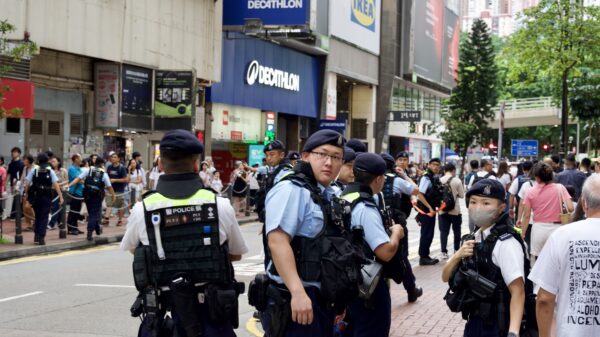Guest writer Gianguido Ghelardi analyses Italy’s new anti-migration decree it in the context 0f international human rights.
On January 2, 2023 the President of Italy enacted a legislative decree of the government providing new rules on access to territorial waters in cases of sea rescue. The measure is aimed at curtailing the operations of NGO ships rescuing migrants in the Mediterranean and has been received with criticism from both political opponents and civil society.
The Background
The coalition government of Fratelli d’Italia, Lega, and Forza Italia was sworn in on October 22, 2022. It took the government less than three weeks to create a national and European controversy out of an NGO ship rescuing migrants in the Mediterranean. At the beginning of November, the Norwegian ship Ocean Viking of NGO SOS Méditerranée sought access to a safe harbour to assist and disembark the 234 migrants it had onboard. After repeated refusals from Italian authorities and almost three weeks at sea, the Ocean Viking was allowed into the French port of Toulouse. Tensions between Italy and France led to reciprocal accusations and attracted the European Union’s criticism and concern, but the Italian government remained on its position, calling for more European action and reiterating its determination to contrast illegal migration flows.
The Decree
With that intent, the government has enacted a law decree restricting the circumstances in which the authorities must grant access to a safe port to a vessel rescuing someone at sea. In particular, the measure targets ships conducting systematic search and rescue operations at sea. Under the new law, in order to have the right to enter and stop in Italian waters, these ships must conform with national navigation safety norms. They must inform the people taken on board of the possibility to request international protection for refugees and, if there is such interest, collect relevant data for the authorities. They must, in the immediateness of the events, request the authorities to assign them a safe port, which they must reach without delay. The rescue operations themselves must not concur in creating a situation of danger onboard nor delay the arrival to a safe port. In case of violation of these norms, the sanction goes from €10,000 to €50,000 and may include the seizure of the ship for up to two months. As the sanctions are administrative and not criminal, they can be imposed by a functionary without recurring to a court, thus without the fundamental safeguards of judicial procedure. The most burdensome and controversial restrictions placed upon NGO operations by this decree are that crews can be required to collect data for asylum applications while still at sea and that a ship will not be allowed to carry out multiple rescue operations. Instead, it will have to reach the assigned port without delay as soon as it makes a rescue.
The Debate
In response to the decree, the European Union called upon Italy to respect international law and NGOs accused the government of violating its international obligations. The main criticism concerns the obligation placed on rescue ships to reach an assigned port after each rescue, especially in the light of Italy’s recent policy to assign particularly distant ports (the Ocean Viking was required to disembark rescued migrants in the Northern Adriatic port of Ravenna, around 900 nautical miles and 4 days of navigation away from the recue area). In addition, NGOs criticise the obligation placed upon ship crews to carry out asylum procedures while still at sea. Nevertheless, Prime Minister Meloni is confident in asserting that Italy is respecting its international obligations. What, then, are the merits of the argument that the decree violates international law?
The 1951 Refugee Convention
Under Article 33 of the United Nations Convention on Refugees of 1951, states are not allowed to expel refugees “in any manner whatsoever” where this would pose a threat to the refugee’s life or freedom “on account of his race, religion, nationality, membership of a particular social group or political opinion.” The United Nations High Commissioner for Refugees considers that the obligation includes cases, where pushing rescue ships out to sea may deny the rescued people a fair opportunity to seek asylum. The government’s decree violates that obligation because it can be used to deny access to territorial waters to ships which do not comply with its provisions, thus denying the people on board the opportunity to seek asylum on the national territory. Moreover, the requirement that crews must inform migrants of their right to asylum and collect relevant data for that purpose does certainly not provide a fair opportunity to seek asylum and, most importantly, places a burden on rescuing ships which is for the state to carry. That is a particularly undue burden considering that, under the decree, ships can be refused access to territorial waters if they do not comply with it.
The United Nations Convention on the Law of the Sea
Two provisions of the United Nations Convention on the Law of the Sea (UNCLOS) are particularly relevant to the decree: the right of innocent passage under Article 17 and the duty to render assistance under Article 98. The right of innocent passage through territorial waters is enshrined in Article 17 of the UNCLOS and includes stopping for the purpose of rendering assistance to persons (Article 18). However, under Article 19, passage is not innocent if it entails unloading people contrary to a state’s immigration laws. The Italian government argues that it can refuse NGO ships the right of innocent passage through its territorial waters when they violate Italian laws. However, even if that argument is accepted, it does not justify the legislative violation of Italy’s obligations under Article 98 of the UNCLOS. This enshrines the duty to render assistance at sea and requires ships “to proceed with all possible speed to the rescue of persons in distress, if informed of their need of assistance, in so far as such action may reasonably be expected.” The decree requires ships to reach the assigned port without being allowed to rescue more people while sailing towards the assigned port. That plainly violates the duty to render assistance “with all possible speed” when a ship is informed of a situation of distress at sea. Thus, for example, when the Geo Barents was sailing towards Taranto after rescuing 85 migrants and received an alert of 45 migrants in distress in the area, under the decree, it would have had to maintain its course towards Taranto. Instead, the ship complied with the Law of the Sea and deviated towards the location of the distress message. As it could not find the boat in distress, eventually no sanction ensued. However, this example strikingly shows how the government’s decree requires NGO ships to violate international law. In addition, the reason why NGO ships are operating in the Mediterranean in the first place is the failure of Italy and other countries to comply with their obligations under Article 98.2 of the UNCLOS, which requires states to “promote the establishment, operation and maintenance of an adequate and effective search and rescue service” at sea.
The European Convention on Human Rights
Article 3 of the European Convention on Human Rights (ECHR) protects individuals from inhumane or degrading treatment, without exceptions. The scenes reported from board of NGO ships forced to stay at sea for days or weeks because the Italian authorities refused them entry rise strong questions as to whether the migrants onboard were subjected to degrading treatment. The Strasbourg Court has gone very far in punishing degrading treatment by the authorities. For instance, it found that the lack of basic health care in a foreign country meant that the UK could not extradite the applicant, as that would amount to inhumane and degrading treatment violating Article 3. The decree of the Italian government empowers the authorities to expel rescuing ships from its territorial waters if they do not comply with its provisions. The conditions on board rescuing ships are often difficult, migrants are in precarious health conditions, extreme psychological distress, and are exposed to the sea conditions if forced to stay at sea. Therefore, depending on the conditions onboard and if used to expel ships from territorial waters, the decree is likely to give rise to violations of Article 3 of the ECHR.
What next?
Therefore, the government’s decree, aimed at curtailing the freedom of NGOs rescuing migrants in the Mediterranean, violates and potentially violates a number of Italy’s international obligations. As there is no mechanism to enforce international law on behalf of individuals, with exception to the ECHR, that of itself will probably be insufficient to invalidate or modify the law. However, the decree must be converted into law by Parliament within 60 days if it is to become permanent law. Therefore, it is now for politicians to take into account Italy’s international obligations and uphold its international reputation, by nullifying the decree or modifying it in accordance with international law.
Gianguido Ghelardi

















